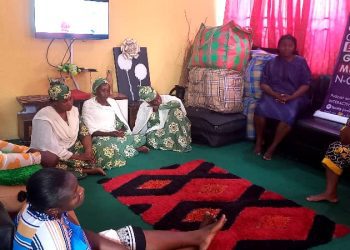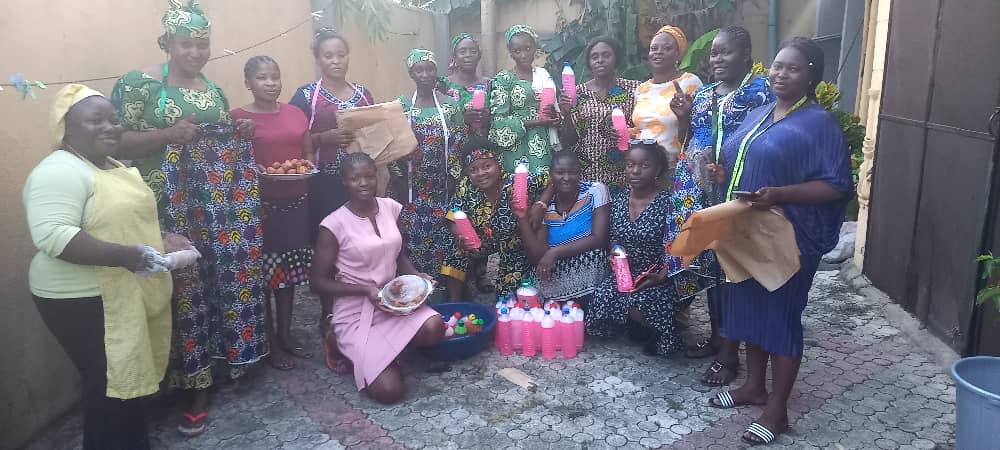As part of its women empowerment initiative and to mark the 2023 International Women’s Day, the Center for Children’s Health Education, Orientation, and Protection, CEE-HOPE hosted a meeting with several survivors of the Female Genital Mutilation (FGM) cultural practice and residents of its women’s shelter.
The one-day event which was done in collaboration with CEE-HOPE’s partner, Hearts100, was aimed at forming community advocacy groups especially across a cluster of informal communities across Lagos where FGM is still being practised mostly undercover.
The meeting brought together women from different communities across Lagos, including Monkey Village, Ifelodun, Akute and Ifako ijaiye.
According to Betty Abah, Founder of CEE-HOPE and Lagos coordinator of Hearts100 as well as coordinator of the Hearts100 shelter, Hearts of Hope, the one-day meeting was organised as a platform for the women to share their experiences, network and learn new skills.
Abah encouraged the women to form small, close-knit community groups to further enlighten others on the need to discard the age-long culture which harms the bodies of women and girls and endanger their health.
“There are laws against FGM especially under the Violence Against Persons Prohibition (VAPP) Act of 2015 but the problem has always been about implementation/enforcement on the part of government as well as lack of awareness of laws like that which criminalise such ancient practices. The onus lies on us to enlighten and discourage others still involved and to report when we see that happening in our communities,” she said.
Sharing her experience, Mrs. Comfort Udeme explained how she was lured to her home state of Akwa Ibom as a teenager during school vacation and forcefully cut.
Fatima Dawud was cut at the age of 10 in Lagos. The incident and painful outcome (as she nearly died due to excessive bleeding) led to her parents’ divorce and her father’s depression, relocation to their home state of Borno and eventual death shortly after.
In the case of Lovina Odiana, after she was cut at age 12 in Ebonyi State, her younger sister’s circumcision followed two years later when she also clocked 12. However, said Mrs. Odiana, her sister never survived the ordeal as she bled to death.
As for Mrs. Ameenat Omobolanle, a widow who hails from Osun State both she and her 30-year-old daughter were cut. All the survivors, drawn from different parts of Nigeria, shared the negative toll of the experience on their sex lives, their determination to not allow their daughters to be cut and their resolve to speak out openly against the practice.

In addition to the discussions, the women were taught economic skills such as soap making, pastry making, and fashion designing (the latter to continue weekly). These skills were aimed at economically empowering women and providing them with the opportunity to become self-sufficient. As a token of appreciation, the women were also given gifts of clothing and funds to support their advocacy efforts.
The meeting was a success as the women left feeling empowered and motivated to make a difference in their communities. The formation of community advocacy groups will enable them to continue educating their communities on the dangers of FGM and to advocate for the rights of women and girls.
Mrs. Omobolanle, 48, said she found the meeting very empowering. “I received so much enlightenment on FGM. It is a dangerous practice and should be totally eradicated, she said.
Mrs Udeme said the skills training, especially the soap making was very interesting. “And that is in addition to meeting and networking with like-minded people,” she added.
Matthew Gloria, a mother of one who was one of the trainers, said she enjoyed the meeting because it was transformative. “We really appreciate CEE-HOPE for this very empowering initiative– the training, fund and awareness creation. In fact, one of the women from my community is already making pastry following the skills she acquired at the meeting.”
Mrs. Mathew, 31, earlier narrated how she narrowly escaped being circumcised as an adolescent during a trip to her home state of Akwa Ibom State.

